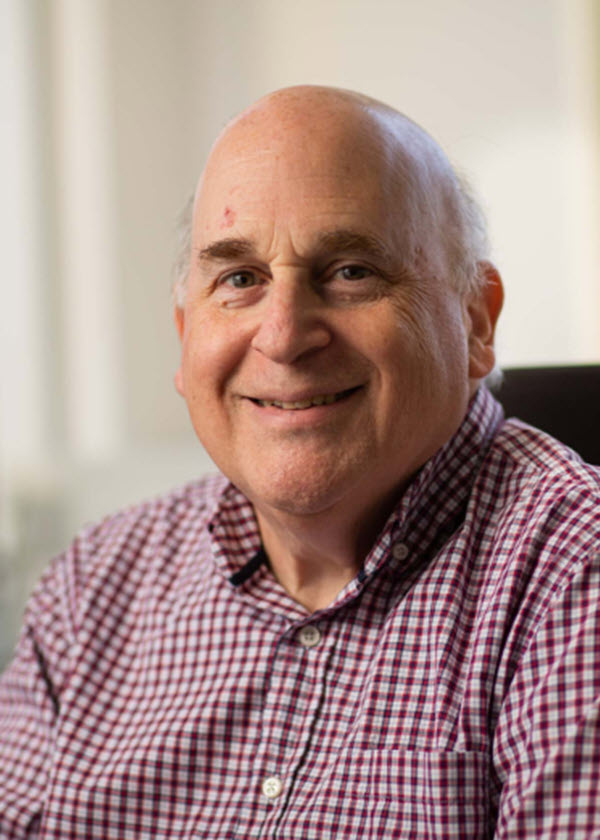
Paul Aisen
MD
Biography
Dr. Aisen has been a leading figure in Alzheimer’s disease (AD) research for nearly four decades, having developed novel methodologies and directed many large therapeutic trials. He has played a major role in our understanding of the continuum of AD, from the long pre-symptomatic phase through eventual cognitive and functional decline. As founding director of the Epstein Family Alzheimer’s Therapeutic Research Institute, the mission to rigorously test methods for early detection of and treatments for AD have led to the most exciting time. The first disease-modifying drugs are now available and new possibilities are within reach. Aisen and his research team rigorously study how to build on newly available anti-amyloid compounds, test anti-tau treatments and ultimately offer prevention of AD. USC is proud to have him at Keck School of Medicine of USC as the Epstein Alzheimer’s Disease Director’s Chair and founding director of the USC Epstein Family Alzheimer’s Therapeutic Research Institute (USC Epstein Family ATRI).
USC Epstein Family ATRI, under Dr. Aisen’s leadership, coordinates and oversees the NIH-funded Alzheimer’s Clinical Trials Consortium (ACTC). The ACTC has 38 member sites across the country with extensive expertise in AD clinical trials. The mission is to accelerate the development of effective interventions for AD and related disorders by coordinating shared expertise and utilizing centralized resources.
Dr. Aisen and Epstein Family ATRI coordinate the Alzheimer’s Disease Neuroimaging Initiative (ADNI), the most important longitudinal observational study in the field. Now in its 20th year, ADNI is widely regarded to have pioneered real-time sharing of scientific data, an approach that has resulted in over 2800 publications.
Co-leader of the Anti-Amyloid Treatment in Asymptomatic Alzheimer’s (A4) study, the first and largest clinical trial of pre-symptomatic AD, broke new ground in this stage of disease. The comprehensive A4 study data is made widely available to further the advancement of the field and is already yielding key insights.
A member of the Organizing Committee of the Clinical Trials on Alzheimer’s Disease (CTAD) conference for over 14 years, Dr. Aisen’s leadership ensures that a meeting focused entirely on Alzheimer’s Disease therapeutic trials with key leaders from around the world in AD research is held annually.
“I now believe we will have prevention of Alzheimer’s in the next ten years.”
Background
He received his B.A. in biochemistry and molecular biology from Harvard and his medical degree from Columbia. He completed his residency at Case Western Reserve University in Cleveland and Mount Sinai Medical Center in New York, and then fellowship training in rheumatology at New York University. After serving as chief medical resident at Mount Sinai, Dr. Aisen began a solo practice in internal medicine and rheumatology in New York. He rejoined the faculty of Mount Sinai in 1994 when he was recruited by Dr. Ken Davis to provide geriatric medical care to patients receiving treatment for memory impairment, and he soon found his lifetime calling. Dr. Aisen was recruited to Georgetown University in 1999 as a professor of neurology and medicine. That year, he founded the Memory Disorders Program, a clinical and research program for AD and related disorders. He continued basic research studies on therapeutic targets and biomarkers and designed and directed multi-center therapeutic trials. He became vice chair of the Department of Neurology at Georgetown in 2004. In 2005, Dr. Leon Thal and NIH leadership asked him to serve as Associate Director of the national Alzheimer’s Disease Cooperative Study (ADCS), while continuing his work at Georgetown. Upon Dr. Thal’s untimely death in 2007, Dr. Aisen was asked to assume leadership the program. From 2007 through 2015, he was professor in the Department of Neurosciences at the University of California, San Diego and Director of the Alzheimer’s Disease Cooperative Study.
Expertscape continually recognizes Aisen as one of the world’s top-ranked experts in Alzheimer’s disease. He has published over 500 peer-reviewed papers and is named to the Clarivate Highly Cited Researchers list each year. He has an h-index of 107 according to Semantic Scholar.
